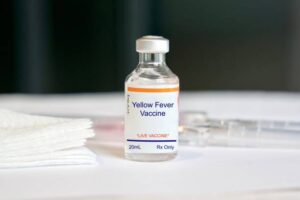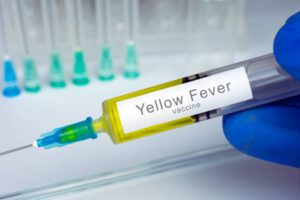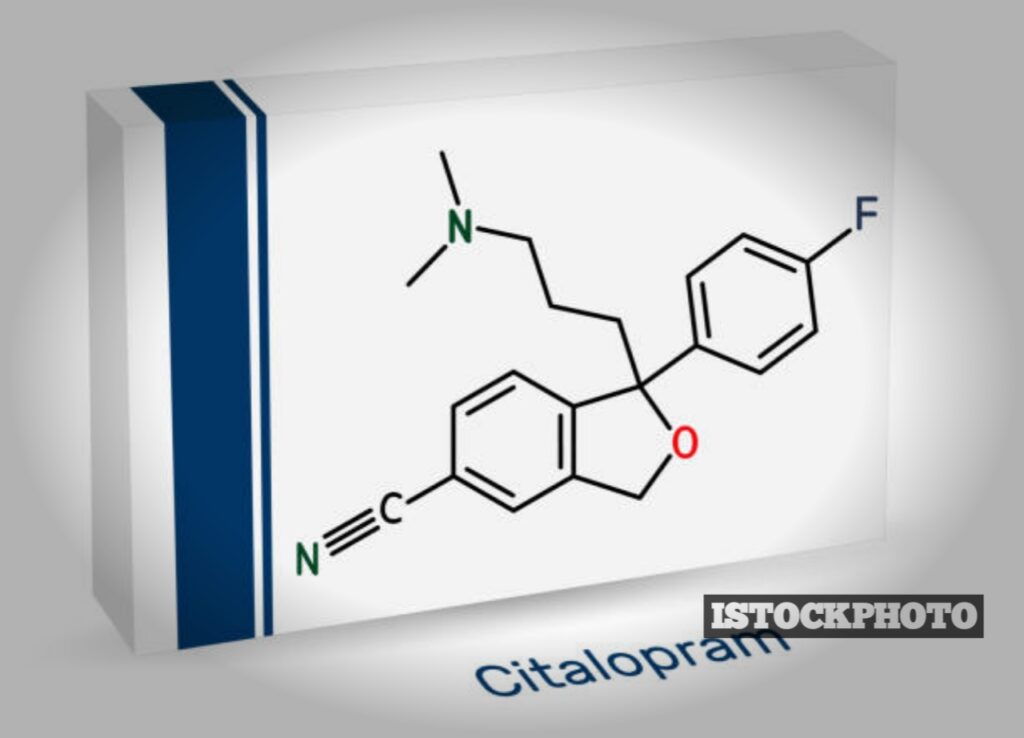Yellow fever is a viral infection which is spread by a particular species of mosquito. The Aedes mosquito is seen as the mosquito that causes yellow fever. Yellow fever is common in areas of Africa and South Africa. Over the years, more cases have been reported in these particular regions. Aedes mosquitos breed in unhealthy and unkempt environments like clear stagnant water in flower vases, flower pot plates, roof gutters, earthen jars for water storage or decorative purposes, watering cans, and bamboo pole holders.
Yellow fever symptoms can be confused with malaria symptoms, but there are always some obvious symptoms that will lead us to believe that the illness is yellow fever. Mild cases cause fever, headache, nausea, and vomiting, while serious cases can cause fatal heart, liver, and kidney conditions.People may also experience pain in the muscles or abdomen; body chills; fatigue; fever; or loss of appetite; jaundice; delirium; headache; internal bleeding; or liver injury.

Yellow fever can be treated with a vaccine, which is recommended for people aged 9 months or older. A single dose of this vaccine provides lifelong protection for most people. The vaccine is a live, weakened form of the virus given as a single shot. If you’re travelling to areas where the risk of yellow fever is high or you live in an area where the risk of having the disease is high, then you probably want to get vaccinated. The yellow fever vaccine is sometimes administered to children during immunizations. Sometimes symptoms might persist even after you’ve taken the vaccine. This is when you should consult your medical professional.
Just like most other vaccines, the yellow fever vaccine has its own side effects after it has been delivered. Here are four side effects of the yellow fever vaccine.
Mild reactions to the yellow fever vaccine may include headaches, muscle aches, and fatigue. Rare but serious life-threatening reactions to yellow fever include:
Allergic reactions, including difficulty breathing or swallowing (anaphylaxis)
Swelling of the brain, spinal cord, or the surrounding tissues (encephalitis or meningitis)
Guillain-Barré syndrome is an uncommon sickness of the nervous system in which a person’s own immune system damages the nerve cells, causing muscle weakness and, sometimes, paralysis
Internal organ dysfunction or failure
Perhaps you received the vaccine recently and you’re already observing certain effects like fever, headache, tiredness, body aches, vomiting, or diarrhea. You should probably consult your healthcare provider.

Not everyone has the risk of developing minor or major after effects or reactions to the vaccine, but people in certain classes may have an increased risk of developing a reaction to the vaccine. These classes of people will still largely benefit from the vaccine, looking at their status and position.
- Between 6 and 8 months old
- Over the age of 60
- Pregnant
- Breastfeeding
Before this class of people gets vaccinated, their guardians should definitely consult with their healthcare providers.
Yellow fever shouldn’t be treated lightly. Out of the 200,000 cases of the disease each year, 30,000 deaths are recorded. The majority of these cases and death reports came from Africa, where 20% to 50% of infected people who develop severe disease die. Getting vaccinated against certain diseases like yellow fever will probably reduce your risk of developing the disease even after you get bitten by the carrier.
To learn more about reactions to the yellow fever vaccine and who should or should not receive it, visit the Vaccine Information Statement page.
[starbox]



